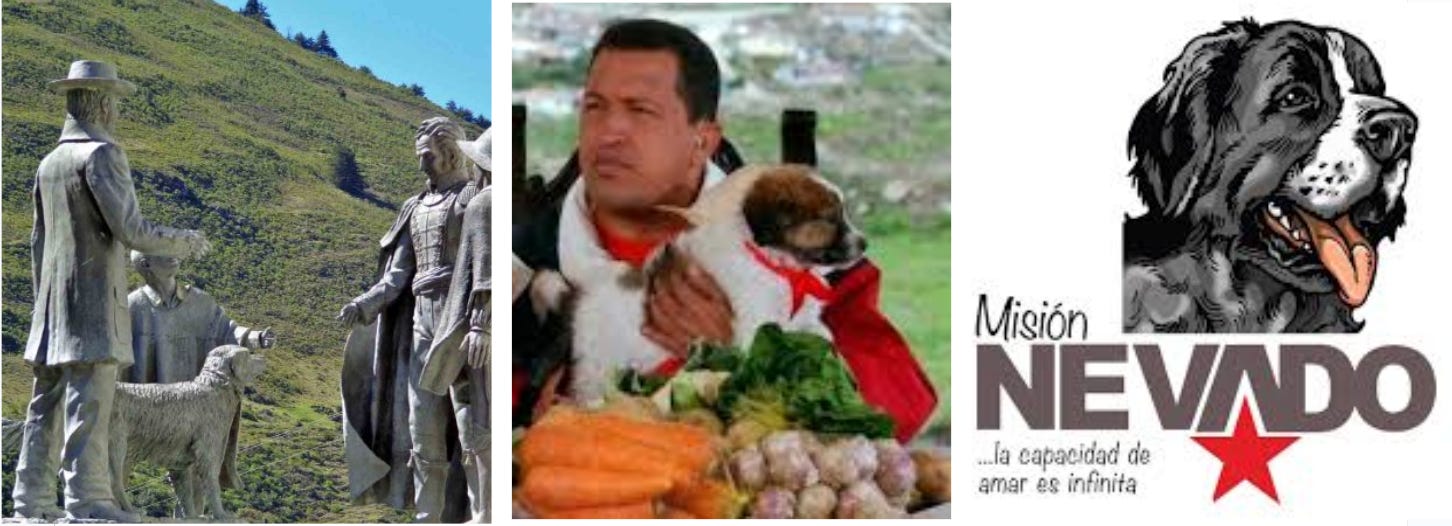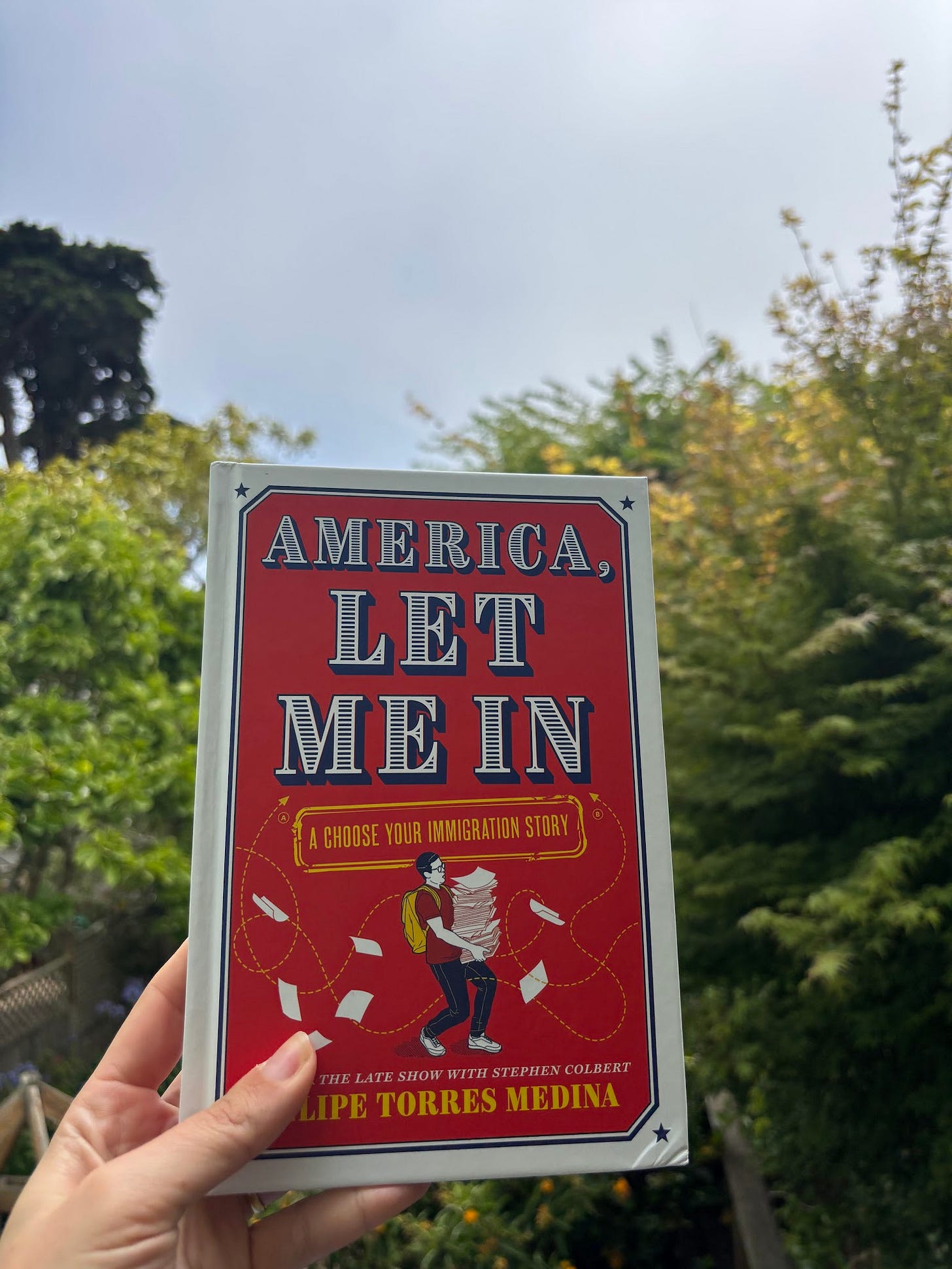Welcome to “A leer, carajo,” a corner of this blog dedicated to highlighting the work of artists of or adjacent to the Venezuelan diaspora 📚. I write these about once a quarter (or once every three months)
“On the day his wife left the country, Ulises Kan decided to get himself a dog.”
What an incredible opening line.
Like other works of literary fiction, there’s an element of truth to the plot of Simpatía by Roberto Blanco Calderón1. Blanco Calderón’s own life inspired Simpatía. While he was living in Paris, where he went for his graduate work, he was a dog walker. While he was enjoying the company of dogs in France, his family set up a foundation to rescue abandoned dogs in Caracas.
Blanco Calderón wrote the first version of this novel in 2018. Millions of Venezuelans had already left by then. Many did not, could not, take their pets. The abandoned pet crisis became (still is) an epidemic. I remember the flood of dog pictures coming from neighborhood WhatsApp groups: a dog tied to a light post, keeping people up with its barking, another walking down the middle of the road, clearly unfamiliar with the ways of the street. Some neighbors implemented their own search and rescue efforts, but it was (is) a true dog-eat-dog world. The abandoned-dog epidemic hit at a time when people were desperate enough to steal zoo animals for food. Those animals that hadn’t already died of starvation.
Blanco Calderón renders this vicious environment very vividly. He positions all of his characters in the ruthless savannah that is the Caracas of the late 2010s. At the top are the untouchable military men with their government connections, followed by the scavengers who live to sustain those in power and feed on the scraps. At the bottom sit the prey who never had much to begin with and have even less now.
In one of my favorite scenes in the book, Ulises, our protagonist, is waiting for a locksmith in his apartment, another bequeathed property from Martín. The wait is long. A man in his sixties shows up, drenched in sweat. He had walked for hours to get there. His car broke down a while ago, he tells Ulises, so he just walks everywhere. The sweaty locksmith lists the litanies keeping him on foot: no replacement parts for his car and a decaying public transport system. Ulises tells the locksmith that Venezuela’s state of decay is unsustainable, a phrase I’ve heard more than once. The locksmith responds with this cutting answer: “I don’t know. Sometimes I think things can get infinitely worse.”
Ulises Kan exists in the segment of the savannah occupied by mice and men who want to live their lives however they can, and don’t want to ask too many questions when something lucky happens to them. At the beginning of the novel, Ulises is married to Paulina. He develops a close relationship with Martín, his father-in-law, one of those top untouchable people with government connections. Paulina leaves Ulises and leaves the country, news that doesn’t seem to faze Ulises all that much. In part because he still has a close relationship with Martín, a man who has become his father-figure, so he still has a family. We learn that, like most dogs, they both share the bond of being orphans. As well as a deep affinity for old and critically-acclaimed movies2.
That bond is tested after Martín bequeaths his beautiful house in the high-middle-class Caracas neighborhood of Los Chorros, Los Argonautas3, to Ulises. Under one condition: that in 120 days, the house becomes the center for a foundation taking care of these orphaned dogs. The foundation will be run by Mariela and Jesús, a vet-trainer couple who are dealing with their own grief and persecution from the government. As the three of them and the house staff are trying to get all the equipment and paperwork together, Ulises reconnects with an old flame, Nadine, a woman who feels like a manic-pixie dream girl as she becomes obsessed with the works and Martín’s wife’s translations of Elizabeth von Arnim, who in 1936 wrote a memoir titled All of the Dogs of My Life. Like a good noir novel, no one is quite who they seem to be, and the house has secrets it only gives up to those who ask the right questions.
This work reminded me a lot of another book: Disgrace by JM Coetzee. They share some superficial similarities: in both books, dogs are “God’s poor children” in the words of Martín, who become the victims of countries that can no longer sustain them, post-Apartheid South Africa and mid-2010s Venezuela, respectively4. I found these two books to sustain so much tension, and yet not exhaust the reader. And they do so by rendering the realities of their environments unapologetically but not gratuitously: no violence against humans or dogs feels like it is there purely for shock value.
In both books, every scene, every verse, and every other piece of art mentioned is an open invitation. They are portals that connect the text to wider motifs. For Simpatía, there are the motifs of the slumbering volcanoes hidden in El Ávila, mentions of Greek and Roman mythology, Simón Bolívar and his mythical dog Nevado. Some of those connections and loops are closed, some are left more open. I’m sure when I re-read this book, I will find different and new interpretations. I’m certain your interpretation of these touchpoints will differ from mine. When you read Blanco Calderón’s interviews, you get a sense that those connections are what writing is all about for him: the playfulness in making a puzzle. He likes “literature that talks about literature”. He obsesses over his references and his characters.

In both Disgrace and Simpatía, the author is not afraid to make their characters amoral and selfish. Everyone is in it for themselves, to some extent. Everyone is in cahoots with someone else. Everyone says they’re behaving this way because they’re trying to get by. That decay of character begets the decay of the social contract. Things aren’t “the way they are” just because the governments were/are awful and violent. People had to be awful and violent for those regimes to take root. Minor acts of selfishness, when you add them up, are incredibly destructive.
I have to admit, I was not aware of Simpatía when it originally came out in Spanish in 2021. Or when it got longlisted for the International Booker Prize in 2024. I know, I know, I’m a bad diasporic literary citizen. I became more acquainted with Blanco Calderón’s work through his most recent collection of short stories, Venecos5. I googled his name, tried to find a local bookstore that had Spanish copies of his books, and was able to find a Spanish copy of Simpatía.
Like Disgrace, Simpatía is a challenging book. To get the full experience, you need to spend time with characters who may not be very pleasant people. The environment is very tense. You, the reader, need to read with attention. You need to ask yourself what you’re not seeing. And you have to be comfortable with knowing you may never get the full story.
I’m not using “challenging” as a negative qualifier. I mean it as a compliment. Complexity is the point of the story. If the novel were not complex and challenging, it would betray the reality it is aiming to represent. When you are ready to spend some time with that complexity, I invite you to spend some time with Simpatía.
Additional Reading / Listening:
The Booker Prize page had a lot of good content around this book:
A Q&A with Blanco Calderón and Noel Hernández González, who translated the book into English, an enjoyable read not just about the novel itself, but also the translation mechanics and how it can be part of the creative process.
An excerpt from the first chapter, translated into English.
I found this review in the Los Angeles Review of Books from Gisela Salim-Peyer, a Venezuelan assistant editor at The Atlantic, to be very thorough. She does further investigation linking some of the events in the book to real-life stories in Venezuela.
I found two interviews, this one by Andreu Navarra and this one from the Southwest Review in honor of Blanco Calderón’s previous novel, The Night, to be very informative about Blanco Calderón’s influences and drivers as an author.
Here is one of Blanco Calderón’s short stories, “The Mad People of Paris,” translated by Thomas Bunstead into English. It won the prestigious O’Henry Prize. It’s part of a collection also translated by Bunstead, Sacrifices.
Updates on past “A leer, carajo” books: Freedom is a Feast by Alejandro Puyana, the first book in this series, is coming out in paperback in a couple of weeks! Go get it!
Extra credit!
I couldn’t let this edition go out without mentioning one of my new favorite books, America, Let Me In by Felipe Torres Medina. Styled as a “choose-your-own-adventure book”, it is one of the smartest pieces on the American immigration system I have ever read. And of course it is, because the author is a Peabody and Emmy award-winning Colombian writer who works on the Colbert Late Night show. He knows his way around comedy and visa applications. It is educational but not in a preachy way, with thoroughly researched (and hilariously described) descriptions of all kinds of visas: from the investor, to the genius, to the 90-day fiancé. Choose your path and see if you can hit all of them!
Beyond the genius delivery, the “peanut butter around the pill you give to your dog” wrapper (his description at an event I went to), Torres Medina does two things exceptionally well: he defines his scope very clearly (he is not wandering into paths of immigration not defined by having a visa status) and he describes his reasoning for doing so concisely (good comedy is not about punching down, and he knows where he and his book stand and doesn’t feel he can tell these stories with the respect and empathy they deserve).
When I saw him speak, Torres Medina was asked what the unsaid understanding is from immigrant to immigrant. He said (and I’m paraphrasing from my notes), “I immediately understand this person is a little anxious all the time, that this person paid a lot of money and spent a lot of time figuring out how to stay here. Because no one does this for fun.”
He ends his book urging those who can vote to do so, thinking of their favorite immigrant. And vote for the person who will make life easier for them. He wrote that in 2024. Most Americans didn’t vote that way.
PS: Many thanks to
, who wrote in their piece, Reading Like a Writer, about using a specific size of notecards to take notes as you read along. It has quickly become my favorite methodology for close readings!This is the title of the book in Spanish and in English. It’s an interesting symmetry to Blanco Calderón’s previous novel, The Night, also with the same title in Spanish and English.
This is not the only work I have read from Blanco Calderón that mentions The Godfather. Blanco Calderón LOVES referencing The Godfather.
Houses in Venezuela can have names, and that is part of their address. That can make driving to places, especially in neighborhoods with dizzying street patterns like Los Chorros, an almost impossible task.
Or because Disgrace won the Booker Prize in 1999, and Simpatía was longlisted for the International Booker Prize in 2024. Or that both book covers feature dogs.
As an added bonus, I’ll be writing a highlight of Venecos in Spanish!






